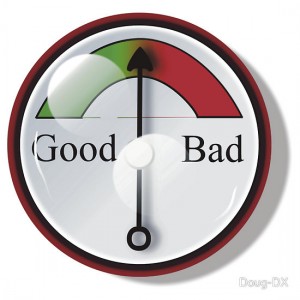 How to measure effective practice? Certainly a timeless question. In his latest blog entry, Daniel Coyle lays out a gauge do precisely this and help peole “practice better.”
How to measure effective practice? Certainly a timeless question. In his latest blog entry, Daniel Coyle lays out a gauge do precisely this and help peole “practice better.”
Before reading the comments below, make sure and check out Daniel Coyle’s original article to get an understanding of the concepts discussed here.
This article gets right to the core of essential aspects in practicing. There are countless ways to practice. But there are only a few good ways to practice effectively. In all of those, having a plan is crucial. This is the key to success in the practice room.
Daniel Coyle calls it the R.E.P.S. Gauge. This is a great idea, and I would like to add some additional ideas for musicians that would fit perfectly with Mr. Coyle’s practicing gauge.
(R) stands for Reaching/Repeating
Reaching is a symbol for reaching inwards and bringing out the absolute best in your self.
Reaching is a symbol for reaching outwards to communicate and connect with the audience in a powerful and meaningful way. To do this in your practice session, visualize being in a big concert hall full of people and perform for them without holding anything back or second guessing your self.
Take a little time to think about a number of other ways where reaching can be used in a very meaningful way.
(E) Stands for Engagement
We know from lots of scientific research on learning that when the learner is engaged the results comes much faster. The hard part is trying to inspire ourself to be engaged. What are some creative ways of doing that?
Think about your most inspiring performer or a great recording or concert that you remember, and then speak the words “engage, engage, ENGAGE!” to yourself in order to convince yourself that you must be engaged in order to get to that level.
Think creatively about other ways that you can inspire yourself to be engaged. Inspiring your self to be engaged even before going into the practice room is important.
(P) Stands for Purposefulness
Daniel Coyle’s basketball story used here is perfect. We have to practice performing with all the excitement that is part of playing in front of an audience. In real live concert situations the adrenaline flows and the excitement and emotions get much stronger. It is crucial to get used to perform with that feeling. Make sure to set up small rehearsal concerts for real people before competitions and other performances.
(S) stands for Strong, Direct, Immediate Feedback
For musicians there is nothing better than recording yourself and listen to your music immediately after. Think through all the passages and sections that you were not happy with and repeat your playing without any prior practicing. It is amazing how many things can be fixed with just conscious thought and playing it through again without practicing it. We need to learn how to adjust as we play in concert situations.
How to measure effective practice? Use the R.E.P.S. practice gauge… and do lots of reps!
If you liked this article please check out The Talent Code to find many more treasures you can use in your daily work














No comments yet.